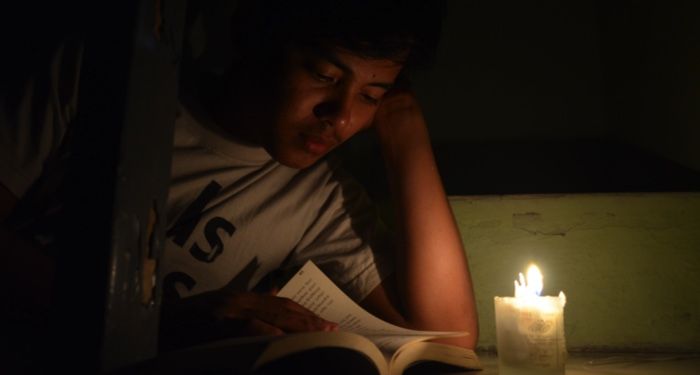“So I bought this book from this cute indie bookstore I’d never been to but always wanted to go,” I told my therapist during our last session. “It wasn’t a book that I was dying to read, but I hadn’t seen it pop up anywhere else, and it’s the kind of book you can flip through and read a chapter here and there every once in a while. I read a little bit the day after, and when I woke up the next morning to the unfinished novel sitting in my living room, it didn’t feel daunting. Life itself didn’t feel daunting, either. And I can’t remember the last time reading felt like that.”
Indeed, over the last few months, I’ve found myself reading for pleasure in a way that I haven’t in a very long time. I chronicled my healing process of relearning to read for pleasure as an English major, but this was different. Something had shifted and my heavy spirit felt lifted. Over the years, I’ve written about how rereading favorite books has helped tone down my anxiety, and in the thick of the pandemic in 2020, I asked when I would stop defining myself by how many books I’ve read. It would turn out that the answer, dear reader, was when I finally went on anxiety medication.
I spent the better part of the last seven years as an English major, which requires a certain level of fast reading and analysis that merely functions on a “if you know, you know” type of mentality; but that period of my life was more so defined by my mostly uphill battle with an anxiety disorder that was never formally diagnosed. Last year marked five years that I’ve been in regular psychotherapy, but until the pandemic the only significant condition that my psychologist ever mentioned to me was high-functioning anxiety — which can be hard to pinpoint or diagnose since we often power through when are actually falling apart. Great! It was only last fall, when a year and a half of crisis mode had rendered my mental health completely uninhabitable, forcing me to visit my university’s health clinic and receive medication for generalized anxiety disorder.
You might be wondering, what does anxiety have to do with the way one reads? I surely can’t speak for everyone, but since reading is such a large part of my life and was the thing I was studying and being tested on for over half a decade, it became a coping mechanism in the most unhealthiest of ways. When it comes down to it all, most of us have never received proper education on our mental health, and it leads to most of us not knowing how to take proper care of ourselves.
Thus, we self-soothe. And since my coping mechanism of reading was not considered dangerous to myself or others, such as alcohol or substance abuse, it was seldom seen as a red flag. If anything, I forced it on myself, making myself read books compulsively to fill the void. If I was reading, I wouldn’t have to sit alone with myself. If I was reading, I wouldn’t have to confront anything. But then came the version of life that would become a recurring theme in the year 2020 to present, where sitting alone with oneself is not necessarily something we can opt out of.
Suffice to say that being forced to go long periods of time without regular access to the library — the place where most of my aforementioned self-soothing would take place, forcing myself to finish an unrealistically big pile of books as fast as possible just to feel something — not only forced me to finally begin sitting alone with myself, but slowly but surely begin to return to a previous mode of being. One where I didn’t care how long it took me to finish a book as long as I was enjoying it. One where I started buying more books again and reading them right away, as opposed to adding them to a looming TBR pile. One where I became one of those people who needs to read at least one chapter of their book before bed at night just to help clear their head.
By the time my anxiety had started to be medicated, I started feeling this way more and more — to the point where I almost didn’t even recognize the way I used to read. I asked myself again and again, what’s changed? What was different was so stupidly simple, but I didn’t even realize. It was like I had simply gone back to the way I’d read in high school and as a kid, when I didn’t task books with filling this immense, unexplainable black hole within me. I read what I read when I read, and it felt like forever since exactly that had been just enough.
It’s like what Cady Heron says at the end of Mean Girls: “All the drama from last year just wasn’t important anymore.” For once, it feels like I can just read books and not feel obligated to make them a personality or a compulsive coping mechanism that was clearly never working. It took me a long time to get there, but I had to learn for myself that there’s no shame in seeking out mental health medication. I just wish I had gotten there sooner — since if someone had told me that it would not only improve my quality of life but also that of my reading life, I might have sought it out quicker. As Katherine Heigl once put it, “You can do a lot of inner soul work, but I’m a big fan of Zoloft.”
